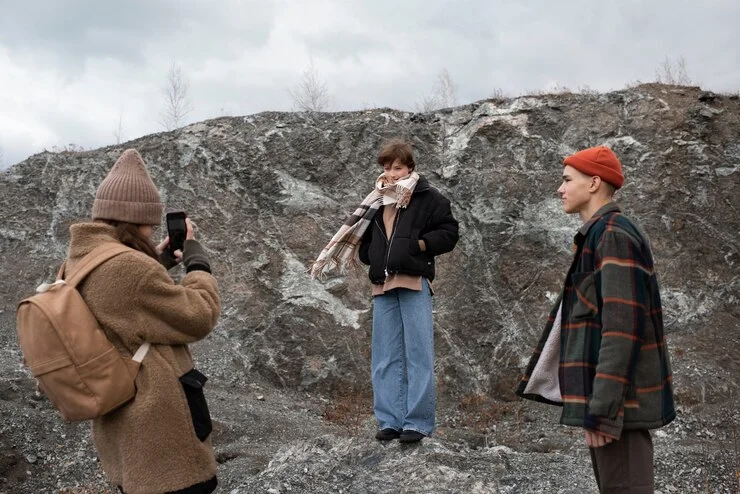It’s easy to picture addiction when it’s loud. The kind that leaves someone passed out in a parking lot or hitting bottom so hard that it makes headlines. But the truth? That’s not most people’s story. A lot of folks struggling with addiction still show up to work every day. They’re raising kids, making jokes at dinner, and sending thank-you texts to their moms. From the outside, they look like they’ve got it together. That’s why it’s harder to spot when things are quietly falling apart on the inside rock bottom.
So what does hitting rock bottom really look like in 2025? It’s changed. And it’s probably not what you think.
You Can’t Fall Apart If You’re Already Good at Faking It
High-functioning addiction is its own kind of trap. When you’re not missing work, not getting DUIs, not going to jail, it’s easy to tell yourself you’re fine. People even praise you for being “so responsible.” But you know what’s happening behind closed doors. You know that what started as a drink to relax is now something you need just to feel normal. Or that the pills you were prescribed have quietly taken over your mornings.
People don’t ask questions if you keep showing up. And maybe that’s the problem. Because the longer you can fake it, the longer you can stay in denial. And denial is what lets addiction sink in deeper.
Sometimes “rock bottom” isn’t a crash. Sometimes it’s just a slow sinking—into anxiety, into depression, into this constant feeling that you’re not really here. You start to feel like a ghost in your own life. Nothing’s exploded yet, but everything feels wrong rock bottom. That counts, too.
When Everything Feels Like Too Much and Not Enough
For a lot of people, addiction isn’t about chasing a high. It’s about numbing out. You’re overwhelmed and under-cared-for. Life feels like too much and not enough all at once. So you reach for something that gives you control—or at least takes the edge off.
Maybe you’re parenting solo, or living in a city where you know no one. Maybe you lost someone, and you never really figured out how to grieve. Maybe you’re running a business, keeping everyone else afloat, and nobody’s asked how you’re doing in years.
Addiction often starts as a way to survive. It becomes a problem when it becomes the only way. If the idea of giving it up feels terrifying—not just hard, but actually impossible—that’s a sign. That means it’s time to look deeper. That means maybe you need a pet-friendly rehab where you don’t have to choose between getting better and keeping your dog. It sounds small, but those little things matter. They can be the difference between checking in and never calling for help at all rock bottom.
The Hidden Addict in the Group Chat
Think about your friends. Some of them drink more than they should. Some are on something and pretending they’re not. Some joke about needing wine to “survive the day.” It’s all fun and games until someone starts falling asleep with a bottle still open or taking pills just to answer emails.
We’ve normalized a lot of self-medication. Wine culture, weed memes, prescription pills with cute nicknames—it’s all around us. So it makes sense that we’d miss when someone’s gone from casually using to truly needing. Especially when they’re still going to work and showing up to brunch.
And if you’re the one struggling, it’s easy to hide in that crowd. To tell yourself you’re just doing what everyone else is. But deep down, you know if it’s gone too far. You know if you feel panicky at the thought of being without it rock bottom.
When It’s Time to Say Something (Even If It’s Just to Yourself)
You don’t need a dramatic collapse to get help. You don’t have to wait for something awful to happen. That’s the biggest lie about addiction—that you have to lose everything before you can get better. You’re allowed to choose healing before the world forces it on you.
Maybe your body’s already giving you warnings—headaches, stomach issues, random anxiety. Maybe your sleep is garbage. Maybe your relationships feel tense, and you’re not sure why. These are red flags. Not because they make you a bad person, but because they’re signs your life needs attention of rock bottom.
Saying, “I need help” is not a confession. It’s a turning point. And you don’t have to do it alone. Whether you’re looking for a rehab near Fort Worth, Boston or anywhere in between, there are places that won’t judge you for still being “functional.” They won’t make you feel like a fraud for getting help before everything burns down. In fact, that’s one of the smartest things you can do.
You Don’t Have to Be a Mess to Want More From Life
Here’s the quiet truth that gets missed in all the noise: you don’t have to be in ruins to want a better life. You can be doing okay on paper and still feel like something’s off. That counts. You count rock bottom.
Addiction doesn’t always look like the worst-case scenario. Sometimes it looks like you—working hard, being polite, taking care of everyone but yourself. And if you’ve read this far and something’s stirring in your chest, pay attention. That’s your sign.
You don’t need to crash to rise. You can start climbing now.







